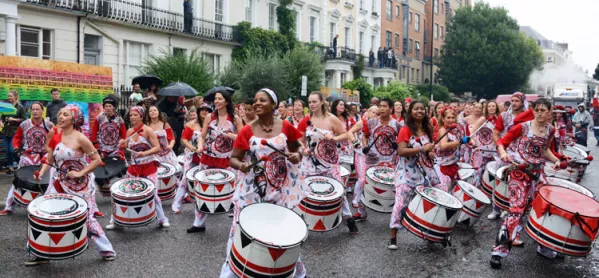In 2013, several schools in Birmingham hit the headlines over what became known as the “Trojan Horse plot”, in which some Muslim groups in the city were alleged to have installed governors in order to gain control of a number of schools.
Since then, questions of identity, integration and “Britishness” have rarely been far from the headlines and the government has escalated its drive to promote cross-community relations in schools.
Our approach to this issue may, in the current educational climate, be viewed as outside the mainstream - we decided to focus our curriculum on music and art.
Around 85 per cent of our pupils speak English as a second language and our community has suffered from high levels of crime, social deprivation and religious divisions. In a situation like this, schools should adopt a holistic approach to education - with lessons in social mixing and citizenship. Ofsted recognised this in 2014 by urging schools to promote British values such as democracy, the rule of law and respect for people of all faiths.
However, many teachers find these statements all too easy to make but not so easy to transform into anything tangible. Across many parts of modern Britain, this is the biggest challenge facing teachers. How can we take lofty ideas such as respect for democracy, the rule of law and individual liberty and instil them in primary school children?
We tried a number of methods - teaching history and literature, citizenship lessons, inviting speakers from religious and community groups. It quickly became clear that these conventional methods were neither age-appropriate nor right for the social context we were working in. We had to come up with an alternative.
It came with a focus on music and the arts. I have always had a passion for both, as they can help bring together people of different backgrounds while also serving as a symbol of cultural distinctiveness, exposing children to a rich patchwork of tradition and perspectives. I wanted to harness these advantages as a tool to bring the various communities at Feversham together and integrate them into wider British society.
Renewed focus on the arts
At first sight, a plan for a renewed focus on the arts, and music in particular, might seem relatively uncontroversial. However, those in the UK’s Muslim community hold widely divergent views. Many families have and play instruments at home and consider music to be an important part of their faith, while others are sceptical or resistant to any sort of music, dancing and theatre.
Our approach sparked a fierce debate about music, integration and British values in the local communities that Feversham serves. We spent time reaching out to faith leaders, convincing them of the value that an education in the arts can have, both in terms of integrating children from minorities with wider British society and through the increased confidence they gain through performing art.
I had a number of unhappy parents come and speak with me when I announced our new focus, but my resolve did not soften. While we must value the diverse backgrounds of our children, an enjoyment of music, drama and acting is not only an important part of British life but also part of a rich tradition in Arabic and Muslim cultures, which UK Muslims should rightly be proud of.
It wasn’t easy, but in time I did get the community on board with our plans. We appointed a specialist teacher to teach high-quality music lessons across the whole of the school. I also stressed the need for the teaching of other subjects such as French, maths and literacy through music. Finally, we held community concerts featuring world-renowned Muslim musicians such as Ahmad Hussain and Dawud Wharnsby, who had hundreds of Muslim children singing peace songs in Hebrew.
Celebration of culture
We have worked hard to bring this celebration of culture to the wider community: pupils perform Shakespeare plays, we hold St George’s Day parties and we’ve recently had Zulu dancers, folk musicians, South Asian dancers and jazz musicians visiting the school to perform for the students and teach them about their culture.
As a result, our relations with the wider community have improved dramatically and pupils are more confident and culturally aware, and are receiving a rich arts education.
The question of how to meet Britain’s integration issue - as well as the requirement to teach British values - is potentially the most important challenge that people working in education face today. Feversham has been fortunate to have resourceful and open-minded teachers, and a supportive sponsor in AET, to carry forward our programme of integration through arts.
I would urge all teachers in leadership positions to think creatively about how they too can best use what resources they have available to meet these challenges.
Naveed Idrees is headteacher of Feversham Primary Academy in Bradford
This is an article in the 1 April edition of TES. This week’s TES magazine is available in all good newsagents. To download the digital edition, Android users can click here and iOS users can click here
Want to keep up with the latest education news and opinion? Follow TES on Twitter and like TES on Facebook

